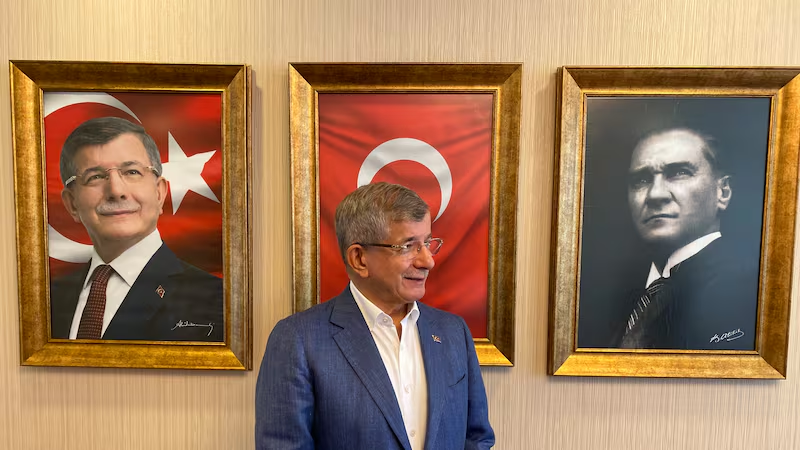The recent Israeli strike on Qatar has sent shockwaves across the Middle East, raising alarm about the safety and stability of nations in the region. Former Turkish Prime Minister Ahmet Davutoğlu has voiced strong concerns, warning that no country in the Middle East feels secure in the aftermath of this unprecedented attack. The incident marks a significant escalation, demonstrating how quickly tensions can spiral and reshape regional dynamics.
This article explores the details of the strike, the responses from Middle Eastern nations, the broader implications for regional security, and the urgent need for diplomatic solutions to prevent further escalation.
Details of the Israeli Strike on Qatar
On September 9, 2025, Israel launched a precision strike in Doha, targeting key figures affiliated with Hamas. Reports indicate that the operation aimed at individuals involved in strategic planning and ceasefire negotiations. The attack led to the deaths of several people, including operatives connected to Hamas and local security personnel.

This marked the first direct Israeli military action against a member of the Gulf Cooperation Council (GCC), highlighting a shift in regional conflict dynamics. The fact that Qatar has long served as a neutral ground and a mediator in Middle Eastern conflicts made this strike especially concerning.
The attack has reignited debates about sovereignty, the limits of military action, and the consequences of targeting a nation that hosts international military operations, including U.S. forces.

Regional Reactions and Rising Tensions
The strike has provoked strong reactions across the Middle East. Qatar immediately condemned the attack, describing it as a violation of sovereignty and a threat to peace efforts. Leaders in the Gulf expressed deep concern, emphasizing that such actions undermine regional stability. Many nations, including members of the Arab League, have voiced support for Qatar and condemned the escalation, warning that further aggression could destabilize the entire Gulf region.
Meanwhile, Israel defended its actions, stating that the operation targeted individuals perceived as threats to regional security. However, the attack has strained Israel’s relationships with several Gulf countries. Diplomatic communications have intensified as nations seek clarity and accountability, reflecting a region on edge and wary of further confrontations.
Ahmet Davutoğlu’s Perspective
Former Turkish Prime Minister Ahmet Davutoğlu, now a leading political figure, has been vocal about the implications of the Israeli strike. According to him, the attack on Qatar signals that no country in the Middle East can claim absolute security. Davutoğlu stressed that hitting Qatar—a nation hosting strategic international military bases—affects the security calculations of every regional power.
He emphasized that the strike was not merely a military operation but a political statement with far-reaching implications. By striking a Gulf state directly, Israel has altered the balance of regional diplomacy, creating uncertainty and mistrust among neighboring nations.

Implications for Middle Eastern Security
The strike on Qatar has several long-term security implications. Firstly, it sets a precedent for direct attacks on GCC member states. Countries that have traditionally stayed neutral in the Israel-Hamas conflict may now reconsider their positions, fearing similar military actions.
Secondly, the strike undermines trust in the Middle East’s mediation frameworks. Qatar has often acted as a neutral broker, hosting negotiations between conflicting parties. With this trust eroded, future diplomatic efforts may face significant hurdles, making peaceful conflict resolution more challenging.
Additionally, the event raises concerns about the safety of international military personnel and assets in the region. The presence of foreign military bases, particularly U.S.-affiliated operations in Qatar, complicates the security scenario and increases the risk of unintentional escalation.
Broader Geopolitical Consequences
The Israeli strike on Qatar could trigger a broader realignment in Middle Eastern geopolitics. Nations that previously maintained a cautious approach to Israel may now reassess their strategies. This includes states that have historically supported peace negotiations, mediated ceasefires, or provided humanitarian aid to conflict zones.
Countries like Turkey and Iran, which have vested interests in the stability of the region, are likely to respond diplomatically, while others may consider enhancing their military preparedness. The possibility of indirect conflicts arising from miscalculations or retaliatory actions cannot be ignored.
Furthermore, the strike may influence global powers’ involvement in the Middle East. Nations with economic, political, or military ties to the region will likely weigh the risks of escalation and reconsider their strategies for engagement.
The Role of Diplomacy in De-escalation
In light of the attack, diplomatic efforts are more crucial than ever. Regional actors must prioritize dialogue over confrontation. High-level negotiations involving Gulf states, Israel, and influential international stakeholders are needed to prevent further escalation.
Diplomacy could focus on creating safety assurances for countries in the Middle East, reaffirming commitments to sovereignty, and reinforcing mechanisms for neutral mediation in conflicts. Regional cooperation and multilateral diplomacy are essential to counter the destabilizing effects of unilateral military actions.

Economic and Humanitarian Impacts
Beyond security, the Israeli strike on Qatar carries economic and humanitarian implications. Instability in the Gulf could disrupt trade, energy supplies, and investment flows, affecting both regional and global markets. Qatar, a key energy exporter, may experience operational disruptions, potentially impacting oil and gas prices worldwide.
Humanitarian concerns are also significant. Civilian safety, displacement, and access to essential services may be affected if the region witnesses further escalation. Regional actors, NGOs, and international organizations may need to step in to mitigate potential crises.
Challenges Ahead
The attack has exposed several challenges that the Middle East faces today:
- Sovereignty Threats: No country can feel entirely safe when a state is directly attacked, challenging traditional notions of territorial integrity.
- Fragile Peace Mechanisms: Trust in mediation and peace processes has been weakened, making conflict resolution more complex.
- Risk of Escalation: Retaliation, either directly or indirectly, could lead to wider conflicts affecting multiple nations.
- Economic Vulnerabilities: Instability may impact regional economies and global energy markets.
- Diplomatic Strain: Relations between Israel and Gulf countries are under pressure, requiring urgent diplomacy to avoid long-term rifts.
Conclusion
The Israeli strike on Qatar represents a turning point in Middle Eastern geopolitics. Former Turkish Prime Minister Ahmet Davutoğlu’s warning that “no country in the Middle East is safe” captures the seriousness of the situation.
This incident underscores the urgent need for diplomatic engagement, regional cooperation, and strategic planning to prevent further escalation. For peace to prevail, nations must reaffirm commitments to sovereignty, strengthen trust in mediation, and prioritize dialogue over unilateral action.
The Middle East now faces a delicate balance—one where vigilance, diplomacy, and cooperation will determine whether the region moves toward stability or further conflict. The world is watching, and the actions of regional and global leaders in the coming months will shape the trajectory of peace and security in this vital part of the globe.
Do follow UAE Stories on Instagram
Read Next – Suryakumar Yadav Reveals Shocking Reason India Skipped Handshakes with Pakistan














